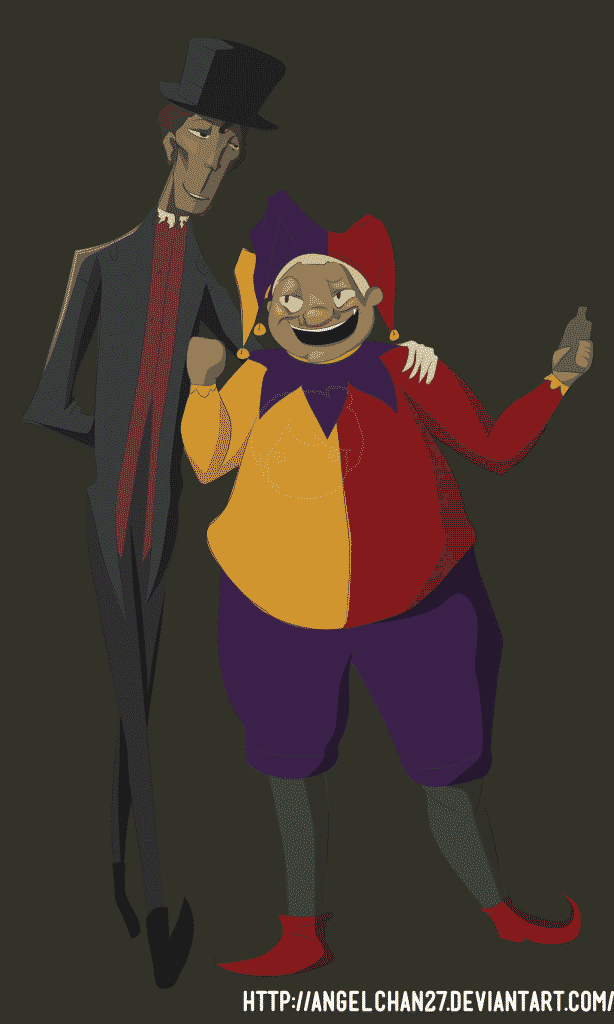In The Cask of Amontillado by Edgar Allen Poe, the dark side of human nature is exemplified through the character of Montressor and his victim, Fortunato. Montressor is a manipulative and vengeful person. These characteristics lead to the death of Fortunato, a man who has wronged him. Through the acts, words, and thoughts of the character, one is able to see him carry out his plan for revenge. upon each other by chance, or so it is made to seem. The setting is lively and jubilant at the carnival.
It then moves to the catacombs of Montressor’s home. It is a place of doom where the story takes place in Italy at a carnival where Montressor and Fortunato happen skeletons lie against damp walls covered in nitre. Montressor dons a “mask of black silk” and a heavy knee-length cloak (76-77). Montressor’s clothes seem to indicate his wanting to conceal himself so he can carry out his devious plan.
On the other side of the spectrum, Fortunato wears a “tight fitting parti-striped dress, and his head was surmounted by the conical cap and bells” (76). His clothing seems to indicate his trusting but foolish nature. The clothing of both characters seems to set the mood for what types of characters they were. However, Montressor’s true character is indicated through his words.
From the start of the story, his vengeful nature sets the tone for the acts that will follow. One of the first things that Montressor narrates to the reader about Fortunato is that he “…must not only punish but punish with impunity” (75). Montressor is also manipulative, as he tells Fortunato that he will have someone else taste the Amontillado, knowing that by doing this Fortunato will feel compelled to taste the wine himself.
“As you are engaged, I am on my way to Luchresi. If anyone has a critical turn I is he. He will tell me…” (76). In addition to being manipulative and vengeful, he also displays condescending traits. Montressor addresses Fortunato in the catacombs saying, “your health is precious. You are rich, respected, admired, beloved; you are happy as once I was. You are a man to be missed” (77).
Montressor’s actions also lend to his vengeful and manipulative nature. He lures Fortunato into the catacombs of his home to carry out his plans. First, he caters to Fortunato’s ego by saying that someone else was as good a judge of wine as he (76). Then Montressor tricks Fortunato into believing that there lies an expensive bottle of wine in the depths of his catacombs.
When they finally reach their destination, Montressor shackles him to the wall, constructs a tomb around him using bricks, and leaves him there to die. It is indicated in the past that Fortunato has hurt Montressor many times, “The thousand injuries of Fortunato I had borne as I best could, but when he ventured upon insult I vowed revenge” (75).”
However, insults or unkind acts were actually mentioned in the story. It was exactly the opposite; Fortunato was friendly and helpful towards Montressor. From the very beginning of the story, one can obviously see that Montressor thinks that he has been wronged by Fortunato. His plan for vengeance is easily seen through his actions and his thoughts. “He had a weak point-this Fortunato-although in other regards he was a man to be respected and even feared” (76).
This line shows that Montressor’s plan was well thought out. There is no indication of what Fortunato thinks about Montressor. It can only be assumed that he trusts him because he follows him into the catacombs, and up until the last moments, before the last brick is put into place, he still holds onto the idea that Montressor is playing a joke on him. indeed-an excellent jest” (80). Montressor is successful in his plan for vengeance.
He succeeds in having Fortunato follow him into the catacombs and in no time at all he had him up against the wall. Throwing the chain around him was easily accomplished in seconds (79).
Then tier by tier, Montressor constructed Fortunato’s tomb of bricks around him. When Montressor called out to him, he heard nothing and thus his plan was complete. “In pace requiescat!” (80). The final lines definitely indicate again the success of Montressor’s plan. Throughout the entire story one could see how Montressor completely manipulated Fortunato and lead him to his demise.
His vengeful nature made him unable to rethink the evil deed he had just committed. His only concern was to avenge the insults that he perceived. He succeeded in taking someone’s life without ever revealing his dark side to anyone.


I love this.